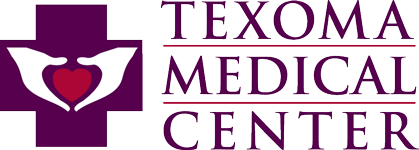Texoma Medical Center Registers Success Through Participation in Digital Resuscitation Training and Education

Patients who suffer a cardiac arrest must receive the highest quality CPR possible, which is known to be the cornerstone of survival. According the the National Institutes of Health, approximately 290,000 in-hospital cardiac arrests occur annually in the U.S. with survival rates at about 25%. For decades, the CPR training standard for healthcare providers has been Basic Life Support with a requirement for participants to renew their course completion card every two years. However, studies show CPR skills can decay within three to six months following this training.
Texoma Medical Center (TMC) recognizes the importance of high-quality CPR competence and performance to save more lives. In July 2023, TMC adopted Resuscitation Quality Improvement® (RQI), a program co-developed by the American Heart Association® and Laerdal Medical, to help clinicians achieve, master and sustain high-quality CPR skills and competence, resulting in improved patient outcomes. Since its adoption, TMC users have documented a 14% improvement in compression and ventilation skill performance. Additionally, one year after adoption, in July 2024, 100% of TMC’s inpatient code blues successfully achieved resuscitation with return of a pulse. And of those patients who did not refuse future resuscitation or elect to pursue comfort measures, 100% survived and were able to be discharged.
TMC’s RQI program adoption demonstrates its continued, longstanding commitment to providing a positive, proactive and patient-centered experience and leveraging innovative solutions to advance patient care and prepare clinicians to deliver that care. More than 1,600 clinicians are enrolled in Basic Life Support, Advanced Life Support and Pediatric Advanced Life Support course instruction, which is delivered through nine RQI Simulation Stations. The stations are positioned on seven different units within TMC and at TMC Behavioral Health Center, with three additional portable units rotated among off-campus facilities, giving learners greater flexibility and 24/7 access to resuscitation training and education.
“Our healthcare system is committed to providing high quality of care and our adoption of the Resuscitation Quality Improvement program reflects this dedication,” said Angela Khammash, BSN, RN, Director of Education at Texoma Medical Center. “Through our implementation of RQI, we are ensuring that our healthcare professionals have the opportunity to regularly refresh and hone their life-saving skills using a program shown to improve the quality of resuscitation efforts, which positively impacts patient outcomes. Ultimately, our goal is to empower our teams with the best tools and training possible – fostering a culture of excellence in patent care across our hospital system.”
RQI is self-directed, simulation-based learning and performance provided through cognitive and hands-on CPR quality improvement sessions that measure and verify competence. The program employs a “low-dose, high-frequency” model requiring healthcare providers to complete course assignments in short sessions every quarter.
In 2018, the American Heart Association, the world’s leading voluntary organization dedicated to a world of longer, healthier lives for all, and Laerdal Medical, one of the world leaders in medical simulation and resuscitation training, called for a new standard of care by shifting resuscitation practice from training once every two years to quarterly instruction to verify CPR competence for healthcare professionals. The RQI program is delivered by RQI Partners, a partnership between and service provider for the Association and Laerdal.
“We are excited Texoma Medical Center answered the call and has fully embraced the RQI program and working with the American Heart Association, Laerdal Medical and RQI Partners to shift to a new standard of resuscitation care – competence,” said Russell Griffin, RQI Partners’ Senior Vice President of Programs and Marketing. “Texoma Medical Center has made high-quality CPR delivery a priority and joins our commitment to ensuring all healthcare providers in every community are competent and confident in their resuscitation skills to help save more lives from cardiac arrest.”
To learn more about the RQI program and the value it brings to hospitals, patient care and local communities, visit heart.org, www.laerdal.com and www.rqipartners.com.
